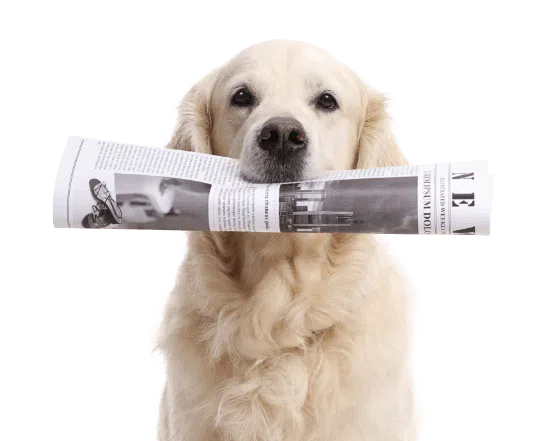The pet health industry is experiencing a significant transformation as pet owners are increasingly prioritizing their overall well-being. This surge in demand for high-quality pet care has led to a dynamic landscape, marked by innovative technologies, evolving consumer preferences and a growing awareness of the importance of preventive care. In this blog, we will delve into the key industry trends that are shaping the pet health sector and driving its growth.
1. Rise in Preventive Care
Pet preventive care stands as a cornerstone of responsible and compassionate pet ownership. Pet owners are realizing that regular check-ups and vaccinations can prevent serious illnesses and extend their pets’ lifespan. Wellness plans and subscription-based services are gaining traction, offering routine veterinary visits, vaccinations and preventive treatments at a fixed cost. This improved shift in attention ensures that pets receive the utmost care, promoting their longevity and overall well-being.
2. Telemedicine and Digital Health Solutions
It has become easier to picture a cat lounging in the comfort of its home receiving a health check-up via a smartphone app than ever before because of the availability of different health services exclusively targeting the pet community. This is the power of telemedicine in the pet health realm. The balanced blend of modern technology and animal care has brought about apps and wearable trackers that enable pet owners to monitor their furry friends’ health in real-time. From heart rates to daily activity levels, the advancements in technology innovation have brought the veterinarian’s office to the palm of our hands.
To learn why pet dental care matters more than you think, read this.
3. Personalized Nutrition
Gone are the days of one-size-fits-all pet diets. Diversity in pet nutrition is all about catering to individual needs. A customized meal plan tailored to a pet’s needs will take into account aspects like breed, age and specific health requirements. With advancements in veterinary science, the challenge of delivering precise nutrition is met with enthusiasm. According to a Grand View Research report, the pet supplement market is anticipated to reach $1.05 billion by 2027. Dog probiotics, catfish oil, and dog vitamins are a few popular pet supplements. Filled with essential nutrients, these diets ensure our companions are living their happiest, healthiest lives.
4. Prioritizing Emotional Wellbeing
Intriguingly, the pet health industry is now also acknowledging the emotional well-being of pet companions. Making a grand entry onto the scene are products and strategies aimed at nurturing their mental well-being. From anxiety-reducing toys to enriching activities that challenge their minds, pets are experiencing an unprecedented bout of emotional support. The empathetic realization that our pets can feel stress and joy much like humans has ignited a revolution in pet mental health care. Furthermore, animal-assisted therapy is gaining recognition as an effective way to improve mental health in both pets and their owners, leading to collaborations between mental health professionals and veterinarians.
5. Pet Insurance Plans
Animal health care plans have emerged as a beacon of assurance in the realm of pet wellness. Much like our own health insurance, these pet insurance plans offer a structured approach to ensuring our pets receive the comprehensive care they deserve. With the thought of veterinary costs in mind, these plans provide a proactive solution, covering routine check-ups, vaccinations and even unexpected medical expenses. These plans embrace the challenge of balancing pets’ well-being with financial considerations, offering pet owners peace of mind and the ability to provide consistent, top-notch healthcare for their beloved animal companions. As the pet health industry evolves, these plans stand as a testament to the industry’s commitment to enhancing the lives of pets.
6. The Decline of Private Practices
Currently, independent owners own around two-thirds of veterinary practices, with large groups or companies owning the remaining one-third. This distinction may continue to change, with many fewer clinics being privately owned, compared to the past, when even more clinics were individually owned. This trend is being driven by the next generation of veterinarians, who are more passionate about veterinary medicine than business management. Instead of dealing with the hassles of practice ownership, they want to concentrate on providing the finest care for pets. This tendency may also be a result of young veterinarians’ desire for a better work-life balance. It is reasonable to assume that more independently operated clinics will be sold in the future.
7. Adoption of Alternative Therapies
Thereafter, alternative therapies that combine conventional veterinary care with holistic practices are gaining traction in the pet health industry. The industry’s growth is evident in its embrace of alternative treatments like acupuncture, chiropractic care and even herbal remedies. These therapies aim to address not just physical ailments but also emotional well-being, offering a more comprehensive and personalized approach to pet health. As awareness grows about the benefits of integrative medicine, more pet owners are embracing these alternative treatment options.
8. Sustainable and Eco-Friendly Products
Lastly, the pet health industry is also aligning itself with the global trend of sustainability. There has been a steep increase in consumer awareness about environmental impact which has prompted the creation of eco-friendly pet products. Pet owners are seeking out products made from natural and renewable materials, as well as those that have minimal impact on the environment. From organic treats to biodegradable poop bags, the pet industry’s commitment to a greener planet is commendable. This newly evolved consciousness reflects a noble desire to care for not only our pets but also the world they inhabit.
Conclusion
According to the American Society for the Prevention of Cruelty to Animals (ASPCA), during the pandemic, almost one in five homes added a dog or cat. And according to the American Veterinary Medical Association, the proportion of families in the United States with dogs climbed from 38.4% in 2016 to 44.5% in 2022, while the proportion of households with cats increased from 25% to 29%. Naturally, these trends have also contributed to a remarkable increase in sales of pet care products and services. From technological leaps to embracing alternative therapies, the trends shaping this industry are as diverse as the animals it serves. As we move towards more creative and effective innovations, let’s remember that our pets’ well-being is at the heart of these advancements.
About Asteris Keystone:
The Asteris Keystone Software Suite enables veterinary practices across a wide range of specialties to utilize the benefits of PACS veterinary radiology software. This integrated suite of solutions delivers unmatched speeds, convenience, and security to your veterinarian practice. To learn more, get in touch with our team now!
Book a Demo of Keystone Omni Now
Submit images directly through Asteris Keystone or via our free and simple Asteris Keystone Community application.
Blog
the latest Updates from Asteris
If you like this post you might like this
Subscribe to our newsletter
don't miss out the updates
from asteris
Sign up to our newsletter to stay in the loop.

